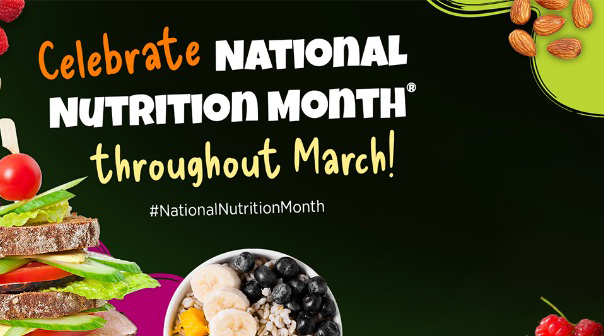Nutrition and its connection to brain health as related to dementia progression has sparked the interest of many experts within recent years due to growing evidence that certain foods may be able to slow down cognitive decline.
Many of us are told by our physicians from a young age to eat a balanced diet in order to grow up strong. As we age, “eating more vegetables” turns into “drink less alcohol” in order to “lower your cholesterol.”

These changes in diet help our bodies as we age, but many of us overlook a big part of our health that requires attention to nutrition — our brain health.
Fueling our brains with the right food is just as important as fueling our bodies.
Neuroscientists, dementia researchers, and registered dietitians often work closely together to understand the impact nutrition has on the brain.
We may not even think about dementia or Alzheimer’s disease until a family member, friend, or we, ourselves, are diagnosed with the cognitive disease — let alone take any preventative measures.
When nurturing our brain experts recommend the Mediterranean diet, a diet high in vitamin-rich foods, healthy fats, and low in red meat.
Eating for Brain Health
- Leafy greens such as kale are high in beneficial nutrients and research suggests these foods may help slow cognitive decline.
- Berries are high in flavonoids and anti-inflammatory properties.
- Omega-3 sources such as salmon, flax seeds, avocados, and walnuts have been linked to lower blood levels of beta-amyloid—the protein that damages the brain.
- Natural caffeine products such as coffee, tea, and dark chocolate have not only shown short-term concentration benefits, but also long-term memory improvement.
- Zinc-rich foods such as pumpkin seeds, lentils, and chicken promote internal healing and immunity.
Balance is Key in Nutrition for Dementia
You may be wondering, “Are there foods that are bad for my brain?”
While there are foods that do not necessarily benefit the brain as well as other foods — there is no one particular “brain-killing food,” similar to how there is not a singular food that can cure the brain. Within the past decade, many dietitians have been steering away from the standard view that there are “good” and “bad” foods. Limiting this vilifying language towards certain foods is a way to create a more wholesome approach to nutrition and diet.
For years there have been several trendy fad diets — low sugar, low calorie, keto, and others. These diets have resulted in some success stories, but more often than not, the people taking part in these types of diets have experienced disordered eating or other health issues and simply lack overall enjoyment in eating.
Celebrating Nutrition and its Impact
It is no secret that the topic of nutrition and diet in the United States is a polarizing discussion. From the everchanging regulations on produce and packaged products, to varying access to affordable and healthy diets, one thing remains the clear goal — providing access to nutritious food and clean water for all.
National Nutrition Month is an annual observation that was established in 1973 by the Academy of Nutrition and Dietetics. The organization says, “During the month of March, everyone is invited to learn about making informed food choices and developing healthful eating and physical activity habits.”
Fueling your body with enough brain-benefiting foods, while consuming “fun” foods in moderation can create a wholesome diet. Enjoying the occasional highly processed carbohydrate or eating a dessert of choice as part of a healthy diet can not only strengthen your brain and body, but also bring you joy. This is an often-overlooked goal when eating, but something that is crucial to a person’s overall wellness.
Sources:
The Tie Between Dementia, Diabetes, and Diet – Dementia Resource Center (stjohnsliving.org)
What is Eating in Moderation? – Day to Day Eats (cornell.edu)
Foods linked to better brainpower – Harvard Health
Academy of Nutrition and Dietetics: eatright.org
5 Health Benefits of Zinc (clevelandclinic.org)








